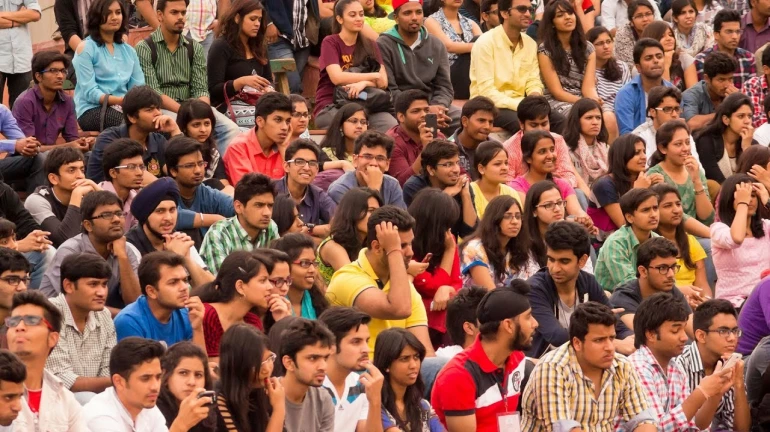
Politics is the heart of democracy as it tends to look after the governance of an area, be it a country, a state or a region. One of the major contributors to Indian politics are the youngsters who form about more than half the total population of India.
The nation's capital, Delhi witnesses a young crowd that not only is keen to discuss politics but also actively engages in politics. The major reason behind this is the intricately woven political structure in its educational institutes. Every year, elections for Delhi University Students’ Union happen in the first week of September. Mind you the DUSU elections are the spotlight of student politics.
DUSU is an elected student body that represents concerns of students affiliated and act as a bridge between authorities and students.
Interestingly, student politics in Delhi witnesses a close relationship with national political parties. For example, the National Student Union of India (NSUI) backed by Congress, Akhil Bhartiya Vidhya Parishad (ABVP) backed by Rashtriya Swayamsevak Sangh (RSS) working jointly with BJP’s official youth wing, Bharatiya Janata Yuva Morcha, All India Students’ Association (AISA) the student wing of the Communist Party of India (Marxist–Leninist) Liberation and the Chhatra Yuva Sangharsh Samiti (CYSS) backed by AAP contest elections among others.
However, the youngsters from the country's financial capital have displayed a nonchalant attitude towards students politics. On numerous instances, the students who are labelled as 'the future of India' ward off political discussions by calling themselves 'apolitical'. But how did the students in Mumbai drift so far apart from politics?
On October 5, 1989, Owen D’Souza, a first-year law student at Jitendra Chauhan (JC) College of Law at Mithibai College campus in Vile Parle, was on his way to fill his nomination form. October 5 was the last day to file nominations for the student elections that would be held three months later in Mumbai colleges.
But D'Souza never managed to submit it as he was killed just outside the college. D’Souza suffered 64 stab wounds and his fingers were chopped off. D’Souza was a student leader with the Congress-backed National Students Union of India (NSUI) and their rivals were Akhil Bharatiya Vidyarthi Parishad (ABVP), the student wing of Bharatiya Janata Party (BJP).
Previously, there were incidents of (to keep students from voting or appearing in elections), but the blatant violence of D’Souza’s murder stunned the city. Later this became the chief factor in determining a ban on campus elections in 1994. The order was eventually lifted after 24 years in 2018.
As a result, the youth from Mumbai have been staring at a potential lack of political understanding. 24 years is a long time; long enough to make student politics in Mumbai, history.
While the youth in Mumbai is aware of the problems that our country faces today, what it lacks is a roadmap that can guide them to direct their angst and will to change. We already witnessed their fiery passion when thousands of students took to roads to support Anna Hazare in his crusade against corruption and to protest against the December 2012 gang-rape.
I had read a brilliant analogy that compared politics with Cricket. It said that politics is like cricket. The politicians play it, old ones retire, new ones come in, some play well, some don’t, yet they all have only one target, to win. We (bureaucrats) do the umpiring. You all are the audience. Once in a while, you try stopping the matches by throwing bottles and showing resentment, nevertheless the game continues!
Students have the power to bring change rests with those who sit in Parliament, the ones whom we elect to power.





